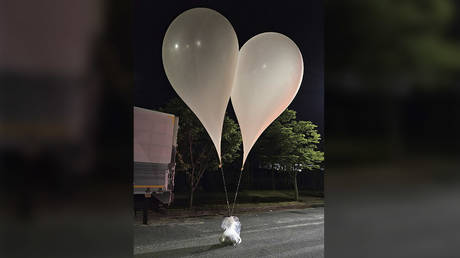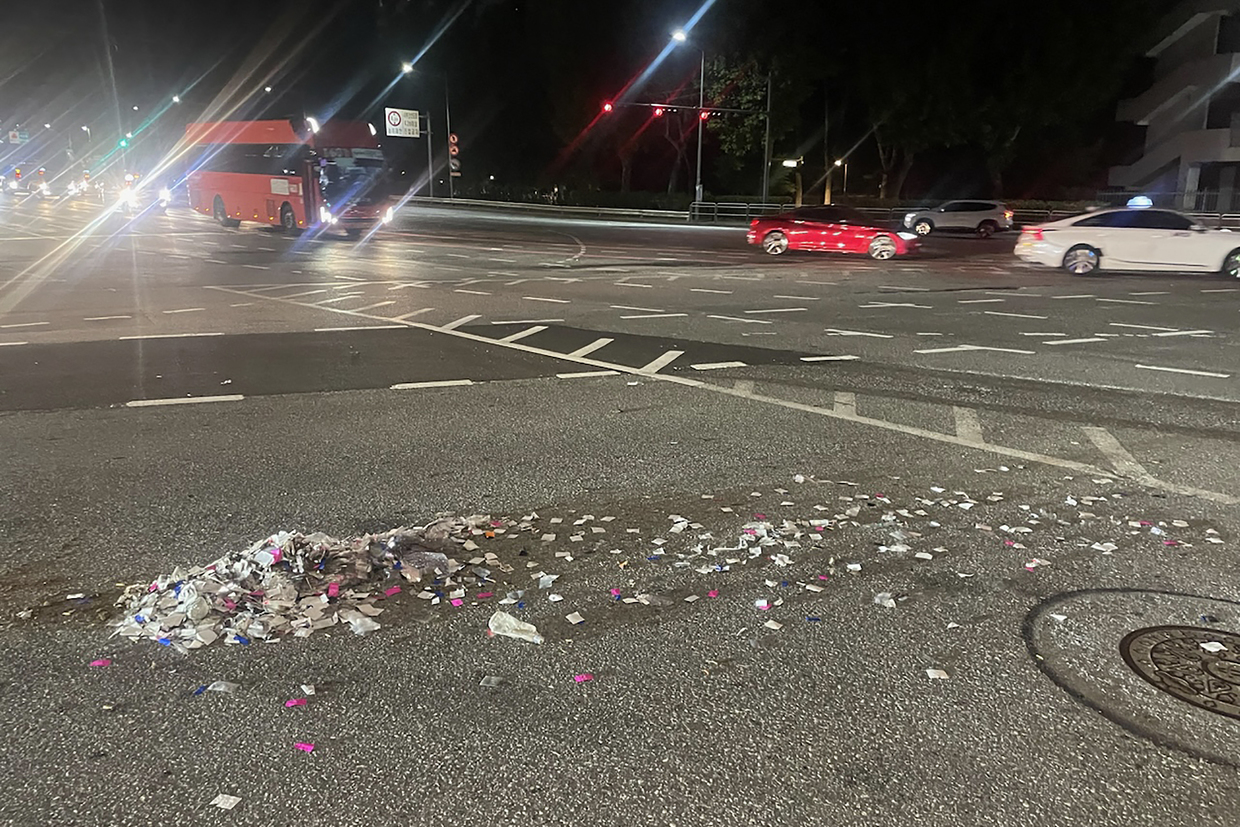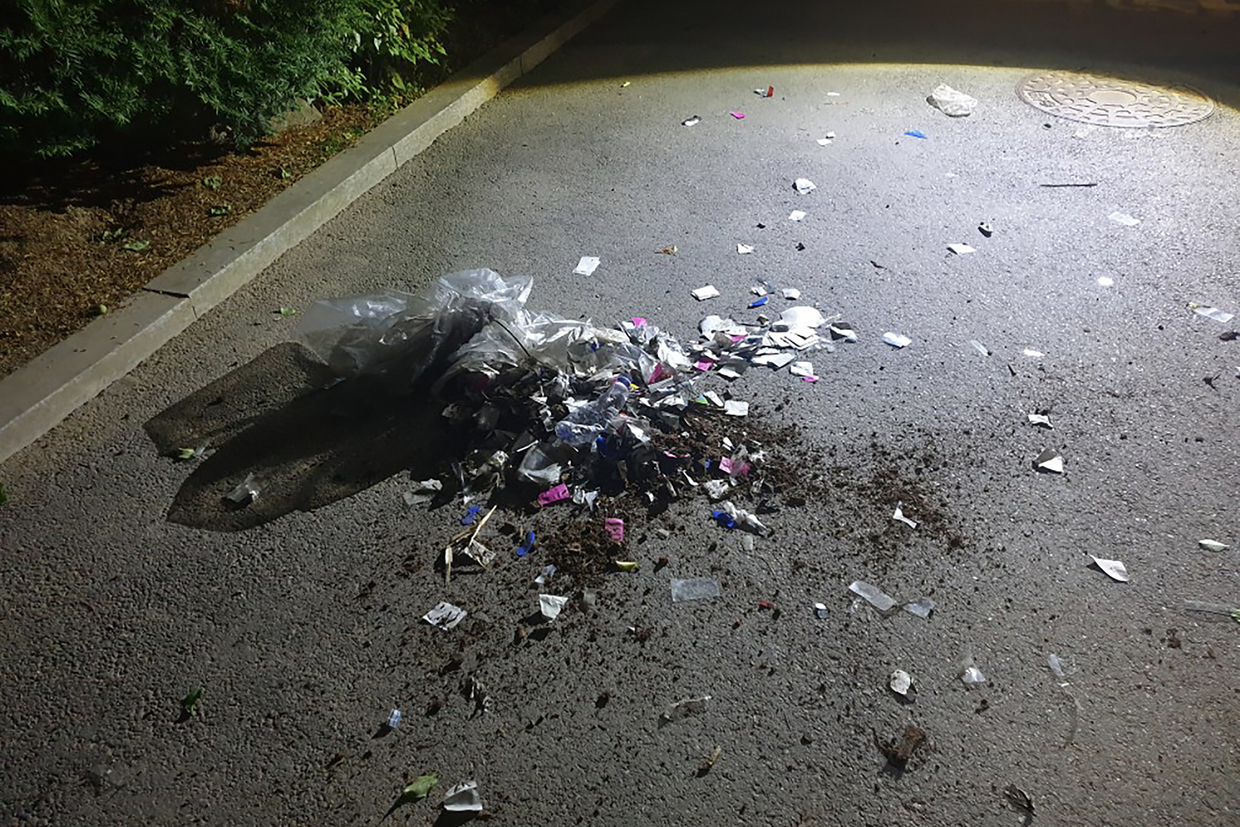
The move followed Seoul’s distribution of anti-Pyongyang leaflets, Yonhap news agency said
North Korea has sent more than 150 balloons carrying trash and manure across its shared border with South Korea in an apparent retaliation for a leaflet campaign, Yonhap news agency reported on Wednesday citing the military.
The balloons began crossing the border on Tuesday night, falling in various parts of the country, and reaching as far as South Korea’s southeast province of South Gyeongsang – more than 280 km (180 miles) from the North, the outlet said.

© Handout / South Korean Defence Ministry / AFP
The balloons carried various pieces of trash – such as plastic bottles, batteries and shoe parts – and even manure, scattering waste as they fell to the ground. Military personnel collected the objects for a detailed analysis, a Joint Chiefs of Staff (JCS) official told the news agency.
“These acts by North Korea clearly violate international law and seriously threaten our people’s safety,” the JCS said. “[We] sternly warn North Korea to immediately stop its inhumane and vulgar act.”
Seoul’s military has advised people not to touch the items and to report to nearby military or police authorities if they discover them, warning that the balloons could cause damage as they fall.
According to the report, North Korea warned on Sunday that it would scatter “mounds of wastepaper and filth” over the border areas in a “tit-for-tat action” against the distribution of anti-Pyongyang leaflets by Seoul activists.

© Handout / South Korean Defence Ministry / AFP
For years, anti-North Korean groups have used balloons – and also bottles dropped in the sea – to send leaflets, food, medicine, small amounts of cash, and mini radios into North Korea.
Pyongyang has long considered the launching of such messages to be hostile acts, and the leaders of the two Koreas agreed in 2018 to suspend leafleting, as well as other activities aimed against each other in the border area.
In 2020, Seoul adopted legislation that prohibits the launching of anti-North Korea leaflets, barring any scattering of printed materials, goods and money across the heavily fortified border.
Despite the decision to stop the campaign, conservative activist groups in South Korea – many run by North Korean defectors – have continued to send such propaganda leaflets.




